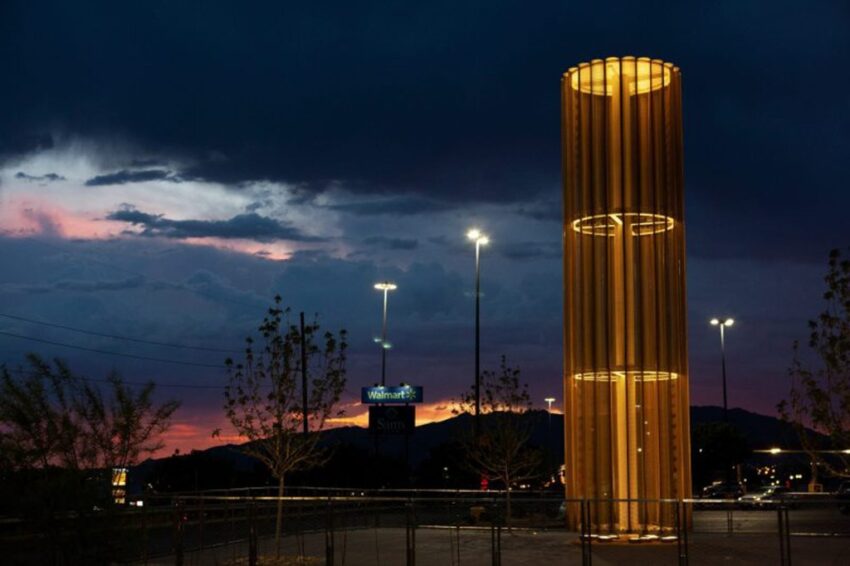
Almost six years after a racist mass shooting at a Walmart terrorized El Paso, the judicial process has yielded decisions that will have the gunman serving multiple life sentences. The sentences were the result of guilty pleas in federal and state court, meaning a jury of El Pasoans was never presented with evidence to assess what happened on Aug. 3, 2019.
That also means that El Paso and the world have only a partial understanding of the deadliest attack targeting Hispanics in modern U.S. history.
District Attorney James Montoya had a news conference March 25 to explain his decision not to seek the death penalty in the state case, which cleared the way for the gunman’s guilty plea. Montoya acknowledged that a trial would have played a key role in giving our community more information about the crime.
“I think it’s important that this community knows the truth of what happened that day, and that certainly would have come out during the trial. There are other avenues for that to come out,” Montoya told media members, singling out records requests by the media and public.
While criminal cases are pending, public records laws generally allow governments to withhold information if releasing it to the public could hamper investigations or prosecutions. After cases end, laws allow more room for making information public.
Even before that news conference, I gave much thought to how El Paso Matters would report on El Paso’s darkest crime after the courts finished their work. We have to balance a number of different values and needs.
Most importantly, the media have an obligation to inform the public about what happened that horrible day. While the broad outlines of the Walmart attack are well established, much is still unknown. We in the media have a responsibility to make known the unknown when it involves important public concerns.
At the same time, we have to avoid retraumatizing victims. We also understand that many El Pasoans would like to close a painful chapter in our history.
There is no magic formula for making a balancing determination like this, but El Paso Matters’ reporters and editors have extensive conversations about these issues before publishing.
In recent months, El Paso Matters has filed multiple requests for government records about the shooting. U.S. District Judge David Guaderrama has authorized El Paso Matters to argue for the unsealing of court records in the federal case against the gunman. Decisions on these requests will unfold in the coming months.
Police and prosecutors in El Paso have not yet released investigative records to El Paso Matters and others seeking the information under public records laws, saying they are working to balance the privacy interests of victims with the public’s right to know about one of the deadliest domestic terror attacks in U.S. history. The FBI denied a Freedom of Information Act request from El Paso for its records in the shooting. The U.S. Justice Department has not yet responded to Freedom of Information Act requests from El Paso Matters.
On July 19, a YouTube channel called Interrogation Files published a video of two El Paso police detectives interrogating the gunman. As its name implies, the YouTube channel produces videos of police interrogating suspects.
The description of the El Paso video didn’t explain how Interrogation Files obtained the material, so I emailed them to ask.
The creator behind the YouTube channel, Andrew Smith of Arkansas, responded that he had filed a request for records from the Texas Department of Public Safety, an agency that was involved in the investigation of the Walmart attack. He offered to share the files he obtained with me, if El Paso Matters would credit Interrogation Files. I agreed and he sent me a folder with extensive video and photo evidence gathered during the investigation and given to him by DPS.
Much of the material was extremely graphic and disturbing. The files also included what I considered important information that had not been previously made public.
I had discussions with the El Paso Matters leadership about what material we should publish, if any. The conversations included our editorial leadership, Cindy Ramirez and Pablo Villa, and our audience engagement leadership, Angela Saavedra and Brandy Ruiz.
We decided to publish a story, including some video clips and screen shots, that highlighted newly discovered information. We agreed we would not publish any graphic images or descriptions, including any images of weapons.
Continuing to examine an attack that forever changed El Paso has many complicated facets. As a news organization deeply embedded in the community we serve, El Paso Matters takes our responsibilities seriously.
Our journalists will continue to ask important questions and look at crucial evidence. When we believe we have information that should be shared with the public, we will do so. We will always strive to report in a way that is respectful of those killed and injured, and respectful of our community.
And El Paso Matters will be transparent as we report on difficult subjects. I welcome feedback on how we are doing, and what we can do better. Feel free to email me at bmoore@elpasomatters.org.
The post Opinion: Why El Paso Matters is publishing new information on the Walmart mass shooting appeared first on El Paso Matters.
 Read: Read More
Read: Read More




